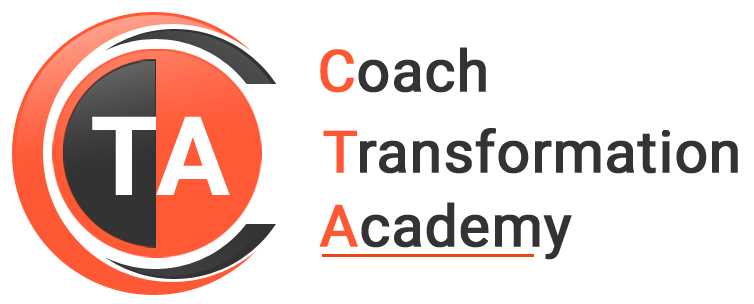
Leadership Development Designer and Facilitator
Tracy Sinclair is a corporate executive and board level coach, as well as a leadership development designer and facilitator, who has worked with a wide range of organisations within the UK and internationally. Drawing on her broad experience in the field across the last two decades, Tracy works with business leaders and executives to support and enhance their professional and personal development.
As a well-established Master Certified Coach (MCC) with the International Coaching Federation (ICF), Tracy uses her extensive knowledge to train coaches and assist managers and leaders in developing their coaching capability. Tracy also specialises in working with organisations to support the development of coaching culture and is an expert speaker on these topics.
Tracy is also dedicated to the development of the coaching profession and the coaching community. In recognition of her efforts, she was named as one of the Leading Global Coaches winners of the Thinkers50 Marshall Goldsmith Coaching Awards of 2019.
In addition to her corporate work, Tracy regularly enjoys consulting in schools, teaching coaching, nonverbal intelligence and communication skills to teachers, students and parents.
Tracy initially began her work in the corporate sector after spending six years in Spain as a translator post-university. On her return to the UK, she developed a highly successful career in International Operations and Project Management and Quality Consultancy. Tracy held senior leadership positions within EMEA Operations for Bank of America, International Operations for Lloyds Register Quality Assurance and Quality Consultancy for American Express, EMEA.
Since 1997, Tracy has worked within the field of leadership development and has worked with clients across a broad range of industry sectors including Goldman Sachs, Greene King, BMW, Amnesty International, Nokia, Fuji Bank, Legal & General, BP, Ford, GSK, ABN AMRO, Standard Chartered, Unilever.
She currently sits on various UK, EMEA and Global ICF working groups to promote and enhance professional coaching. Tracy was the President of the UK ICF Chapter from 2013-2014 and has been an ICF Global Board Director since 2016, serving as Treasurer in 2017, Global Chair in 2018 and Immediate Past Global Chair in 2019. Tracy currently serves as Vice Chair and Director at Large on the International Coaching Federation Global Enterprise Board. She is also a trained Coaching Supervisor, Mentor Coach and an ICF Assessor.
Tracy’s clients describe her as “insightful, intuitive, professional, powerful and warm,” and she, herself, says: “I love to work with organisations, individuals and teams who want to be at their best and reach their fullest potential. Transformational positive change and learning is achieved through a conversation that results in you thinking and acting differently. I will have that conversation with you!”
Keynotes:
Understanding and Applying the Updated ICF Core Competency Model
In this webinar, Tracy Sinclair, MCC, shared the background and a full overview of the updated ICF Core Competency Model. Tracy shared and discussed the essence of the competencies and how they are evidenced in good coaching practice and some coaching psychology that underpins the model. We also answered questions and explored how coaches can integrate these changes and the updated model into their coaching practice.
This webinar is ideal for coaches who are:
- Familiar with the previous competency model and now wish to refresh their skills and integrate the updated model into their coaching practice.
- Coaches who have been more recently trained already in this updated model and who want to deepen their knowledge and understanding in readiness for a credential application.
Here are the keynotes from our webinar with Tracy Sinclair:
Job Analysis: How do we have this updated model?
- What would be the job description for the role of a coach?
- What will be the competencies of the person fulfilling that role well to various levels would need to be described.
- Analyze the job of the coach
- This review is undertaken every 5 to 7 years.
- Data-driven
What is Critical Incident
- A critical incident is when a client has some kind of positive or forward-moving shift in the coaching process. And that shift could be an insight, a change in thinking, attitude, or feeling about something, belief, or energy that is forward moving in some way.
- What was it that the coach did or did not say that may have contributed to that positive shift that a client then had – that point is identified as a critical incident.
- When all this data was analyzed, certain patterns started to emerge that evoked this critical incident. This helped to formulate the tasks a coach undertakes, the knowledge and abilities a coach possesses, and other characteristics.
- In September 2019, the updated competency model was approved.
Virtually all of the concepts and principles of the previous model are included in the updated model.
This demonstrates the evolution of coaching
- The new model is much more streamlined and consistent in its language.
- Some concepts are highlighted.
- The model is more cohesive and shorter.
Key Themes
- Ethical behavior and confidentiality are crucial.
- The coaching agreement is expanded to articulate an expectation that coaches are contracting at three distinct levels.
- The coaching agreement and establishing the coaching agreement can be one of the areas deeply explored as it could be. This is one of the most common reasons for coaches not passing their assessment.
- The coaching agreement should be as clear as it could be.
To be mindful and sensitive
A client has multiple systems around – family, organizational, cultural, and more.
- Am I aware of the fact that the client’s system might be different from mine?
- How can I be of the best service to that person?
ICF Core Competencies
- Competencies 1 & 2 are the foundation from which great coaching is done. These competencies speak more on how we operate as a human being and a professional. And not just about what we do in our coaching sessions.
- The relationship is articulated in different ways around how we maintain these agreements. How that agreement setting informs the relationship that we have, how do we cultivate trust and safety and how do we make ourselves fully available to the other person through our presence.
- The nature and quality of the relationship are absolutely fundamental to the success of the coaching engagement.
- How do we truly and freely listen and respond in that space evokes awareness in the client?
- Facilitating the client’s growth is the ultimate purpose of the coaching.
- Coaching is not just necessarily about getting the solution to a problem or getting a result from a goal. It’s more about how we can invite the person to think – about how they have grown as human beings through finding that solution to the problem, through achieving the goal that they wanted.
- This idea of growth beyond the tactical piece is working on is a rich territory here.
- Competency 7 (Direct Communication) – Though it looks that this competency disappeared, its components are infused in other competencies.
The “being” and “doing” of the coach
- The behavioral elements of coaching
- Competencies 3 to 8 are the focal point of how a coach displays those competencies in a coaching conversation.
- However, the Foundation Competency (Competencies 1 & 2) is the “Being” of the coach.
- These “Being”/ Foundational competencies are focused on the coach. The rest of the competencies (3 to 8) focus on what the coach does with their client.
3 Levels of Agreement
- Level 1: Agreement for Coaching Relationship
- Exploring what is our relationship
- Exploring coach-client compatibility
- Exploring the relationship between coachee and others (for example, client and the line manager)
- How will we manage confidentiality?
- What information we will exchange or not exchange
- It could also include practical things such as timings, logistics, sessions, frequency of the sessions, duration, fee, etc, are also included in this agreement.
- Level 2: Agreement for Overall Coaching Plan and Goals
- What’s the overarching goal? What is the purpose’s territory of the overall package? Where would the client like to be at the end of those sessions?
- How would they know that they achieved these goals?
- What might be some of the topic areas that the client might want to work on a session by session?
- It’s a high-level scoping of overall work the coach and client do together.
- Level 3: Agreement for Session Goals and Objectives
- How are we engaging with our clients, session by session, to understand what they want to achieve that day? So, what are the goals and objectives of that conversation?
- That’s the part being assessed by ICF in the application. The part that is listened to, to understand that a coaching agreement has been set for that coaching session.
Competency 3: Establishes and Maintains Agreements
- Every competency starts with an active verb.
- The continuous words like maintain, cultivate, ongoing – are coming through more.
Competency 4: Cultivates Trust & Safety
- Implies continuity. We don’t just create trust and safety once. In fact, it’s cultivated over time.
- The key concept here is to nurture a safe and supportive environment. And develop mutuality space.
- It’s the environment that we create that’s pivotal to the success of the work.
- Our role is to create the conditions – safe, supportive, trust, confidential, and respectful for them to share freely. And therefore, bring their creative, resourceful, whole being into space and find their solutions.
- Coaching is the space of being comfortable in not knowing. However, we must be sensitive to the fact that they do have their own experiences, values, and belief. And they may not be the same as we have. So, how do I engage with them in a way that is respectful, trusting, supportive, and is not loaded with my own assumptions or experiences?
Competency 5: Maintains Presence
- Presence, trust, and safety are a thread that runs through the whole relationship.
Competency 6: Listens Actively
- Support client in self-expression
- Listening to what the client is saying and not saying.
Competency 7: Evokes Awareness
- This competency was called creating awareness. There’s a shift from the word “creating” to “evoking.”
- As coaches, we don’t create awareness. It’s the client who creates their own awareness, their own experience. We, as coaches, offer something into the space that has the potential to evoke that awareness.
Coaches do offer their perspectives. Remind yourself as a coach to regulate around this:
- How much do I own for my perspectives?
- Am I really doing this without my attachment? Am I offering my perspective because I happen to be a lot? Why are we offering it?
- Check what we are offering. How is it landing with the client? Checking with the client whether it resonates with them or evokes something in them.
Competency 8: Facilitating Client Growth
- All the forms of coaching hopefully lead to some growth.
- How do we transform what we have learned in the coaching session? How do we transform that into actions?
- Not leave the client with the only solution, but with a new awareness and understanding on how they can operate and where else this awareness can be useful.
- What are the forward moment or actions or goals, or steps and plans that the client wants to take after this coaching session?
The Being Competencies
- If we get these first two competencies solidly and consistently in place in terms of how we operate, then our coaching practice from there can be much more effective.
Competency 1: Demonstrate Ethical Practice
- The link to ICF Core values is much more specific than before
Competency 2: Embodies a Coaching Mindset
- Brings forward the heart of the ICF coaching competencies which is around us in engaging and ongoing professional development. And the fact that our credentialing system is renewable already speaks about this competency.
- Our credentials are not forever. We are checking through our 3-year renewal cycle that we are still fit for practicing, we are still operating aligned with the competencies and we’re still learning and growing.
We hope you found our webinar with Tracy Sinclair useful!
A big shoutout to Tracy Sinclair for sharing and discussing such a crucial topic for coaches! Watch the entire video here to catch up with Tracy on ICF Core Coaching Competency Model and an interesting Q&A round: https://youtu.be/Fy-GyrR3kN8
Subscribe to our YouTube Channel to level up your coaching skills and get insights from coaches all around the world.
Stay tuned for more episodes!




